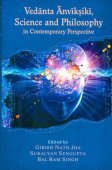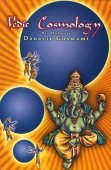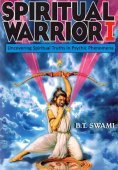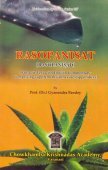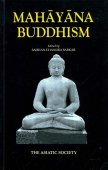Discussion: 1 definition
Introduction:
Discussion means something in Hinduism, Sanskrit. If you want to know the exact meaning, history, etymology or English translation of this term then check out the descriptions on this page. Add your comment or reference to a book if you want to contribute to this summary article.
In Hinduism
Ayurveda (science of life)
Source: INSA Digital Repository: Caraka’s Approach to KnowledgeDiscussion or Debate was an important part of Ayurveda, as it promotes the advancement of knowledge, etc. (Cf. Charaka Samhita, Vimana 8.27- 65).—The seamlessness between medicine and philosophy in Charaka Samhita is again evident when his detailed discussion on the logical parameters of debate appears in a chapter on ‘roga-bhisag-jitiyam’ (features of therapeutics). [...] Caraka advised physicians to confine their discussion among professional peers and to Ayurvedic topics. He was a strong advocate of sambhasha (discussion) as it ‘promotes advancement of knowledge, fluent speech; enhances fame; removes doubt; creates confidence, and uncovers new ideas’.

Āyurveda (आयुर्वेद, ayurveda) is a branch of Indian science dealing with medicine, herbalism, taxology, anatomy, surgery, alchemy and related topics. Traditional practice of Āyurveda in ancient India dates back to at least the first millenium BC. Literature is commonly written in Sanskrit using various poetic metres.
See also (Relevant definitions)
Partial matches: Discussion, Te.
Query error!
Full-text (+1314): Vada, Vicara, Vitarka, Vitarkana, Prastuta, Jalpa, Kathavatthu, Tarka, Pratarkana, Vadavivada, Vibhavana, Vivada, Samvada, Carca, Vimarsha, Parivedana, Pritivada, Praudhi, Nirnaya, Vivecana.
Relevant text
Search found 466 books and stories containing Discussion, The discussion; (plurals include: Discussions, The discussions). You can also click to the full overview containing English textual excerpts. Below are direct links for the most relevant articles:
Anumana in Indian Philosophy (by Sangita Chakravarty)
(E). Liṅga—its varieties < [Chapter 2 - Treatment of Anumāna in Nyāya-Vaiśeṣika Philosophy]
(C). Epistemology in Indian Philosophy < [Chapter 1 - Introduction]
Samkhya elements in the Bhagavata-purana (by Jumli Nath)
Introduction (a comparative note) < [Chapter 5 - Sāṃkhya and the Bhāgavata-purāṇa: Comparative note]
Part 5 - Sāṃkhya in the Mahābhārata < [Chapter 1a - Introduction]
Philosophy of language in the Five Nikayas (by K.T.S. Sarao)
7. Structure of Thesis < [Chapter 1 - Introduction]
General Introduction to the Thesis
6. Research Methodology < [Chapter 1 - Introduction]
The body in early Hatha Yoga (by Ruth Westoby)
Conclusion of chapter 4 < [Chapter 4 - ‘I will slay your red dragon’]
Mahābhārata: pāka and sovereignty < [Chapter 2 - Begin by cooking yourself]
Regarding the word “affect” < [Introduction: Female:body]
Whither Telugu < [April – June, 1999]
A Literary Conference of Cultural Value < [January – March, 1998]
Current Topics < [September-October 1931]
A History of Indian Philosophy Volume 2 (by Surendranath Dasgupta)
Part 29 - Madhusūdana Sarasvatī (a.d. 1500) < [Chapter XI - The Śaṅkara School of Vedānta (continued)]
Part 23 - Vimuktātman (a.d. 1200) < [Chapter XI - The Śaṅkara School of Vedānta (continued)]
Part 14 - Did Logic Originate in the Discussions of Āyurveda Physicians < [Chapter XIII - Speculations in the Medical Schools]
Related products
(+11 more products available)
